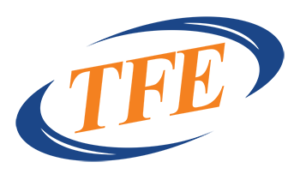Using technology to improve government relations
As we start to see the shift from automation to a new digital revolution in which physical, digital, and biological technologies are fusing together, an organization’s success will depend on its ability to adapt to the technological transformations. This includes government agencies — and this is how and why.
Why keep up with the technology?
Citizens have become tech-savvy.
With an increasingly digital economy and constantly evolving technology, there is a need now more than ever for IT solutions. The general public has become accustomed to electronic devices and communications — and expect digital options and services from all businesses and organizations, including the government. Digital and internet capabilities provide a higher level of convenience and efficiency and cybersecurity, which people especially desire when interacting with government agencies. Suppose there are noticeable gaps between the systems other organizations offer and what government processes have in place. In that case, people can become frustrated with what they see as tedious and outdated procedures.
Government agencies also have jobs to do.
The convenience and efficiencies afforded by IT solutions from a managed service provider don’t benefit only the public stakeholders but also the organizations themselves. By improving the way they work — and the quality of the work — government agencies are facilitating improvements in their services and their fulfillment of government objectives. For instance, when an agency’s mandate requires keeping up with business practices or the public’s protection, the organization must have the tools it needs to do its job.
Information security threats have serious consequences.
Government databases contain an incredible amount of sensitive, private, and personal information about citizens. Breaches of privacy are devastating, and breaches of security can be catastrophic. Hacks threaten the reputation of an organization and pose a safety or security risk to innocent people. Government agencies are often targets for hackers and other cybercriminals. Agencies can benefit greatly from outsourced IT solutions focusing on cybersecurity and network monitoring, detecting and deploying mitigation strategies in real-time rather than after the breach has already occurred.
People want transparency and timely communication.
The proliferation of social media platforms and real-time internet communications has already made a huge impact on the way businesses, organizations, and individuals communicate with each other. Most commercial entities have a data management and PR strategy that ensures prompt acknowledgment and responses to queries and complaints made over social media, on companies’ websites, or another online forum. The fact that someone’s online rant could go viral and embarrass a business or organization means that management actions must be swift and seen to deal directly with the problem identified.
Additionally, people are demanding transparency, openness, and accountability on all entities — especially government ones. We expect our government to have proper IT support, including data management protocols. Whether it’s dealing with public stakeholders commenting during a consultation period or everyday people complaining about services, government organizations need to stay on the ball with how and when they communicate with the public.
Public trust is paramount.
It has never been more evident just how much validity a government derives from public support. According to the Organisation for Economic Co-operation and Development (OECD), of which the US is a member, it is the people’s trust in their government that provides its legitimacy and, ultimately, power. When citizens are distrustful of government organizations, social and community cohesion are challenging to maintain. Thus, staying up to date with the evolving digital processes and technology is vital to retaining the public’s trust. People have to see their government and its agencies as:
- able to protect their safety, security, and privacy rights
- organized and efficient
- transparent and open
- technologically at par with the rest of the world
Want to know how your government agency can keep ahead of the technological curve and build public trust? Contact us today.






